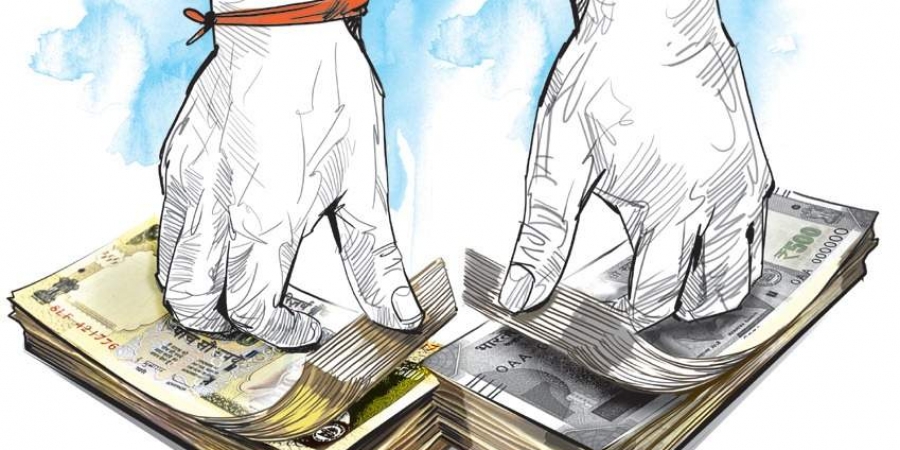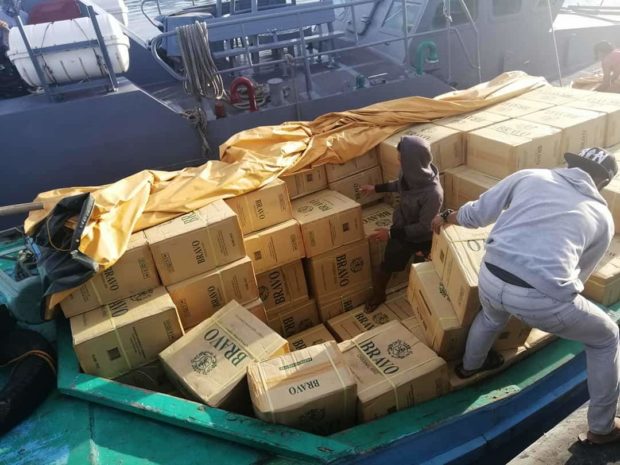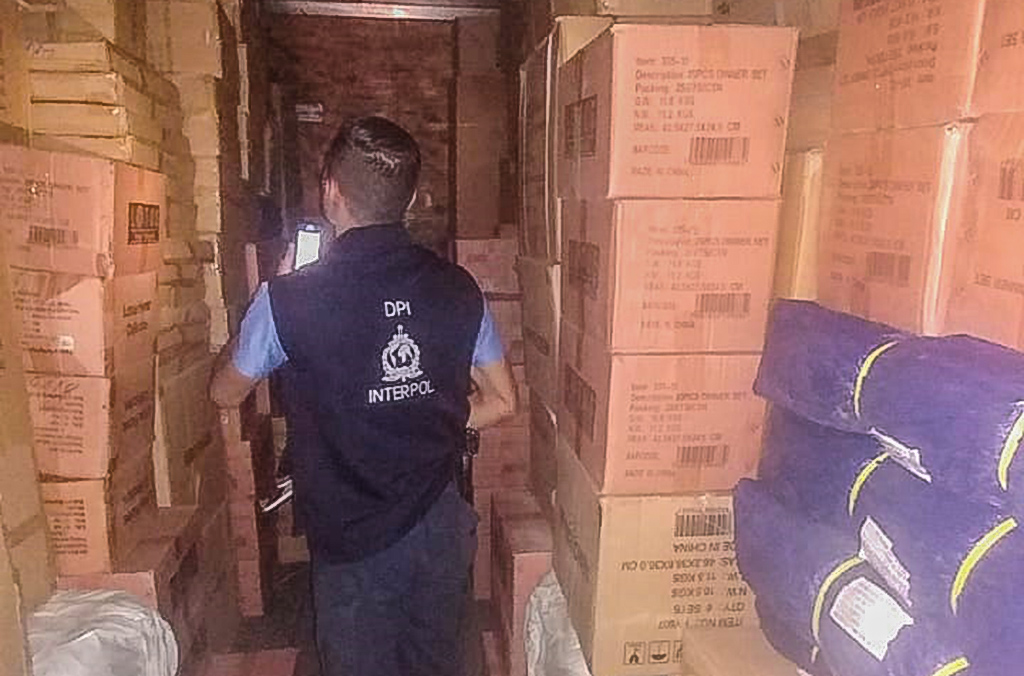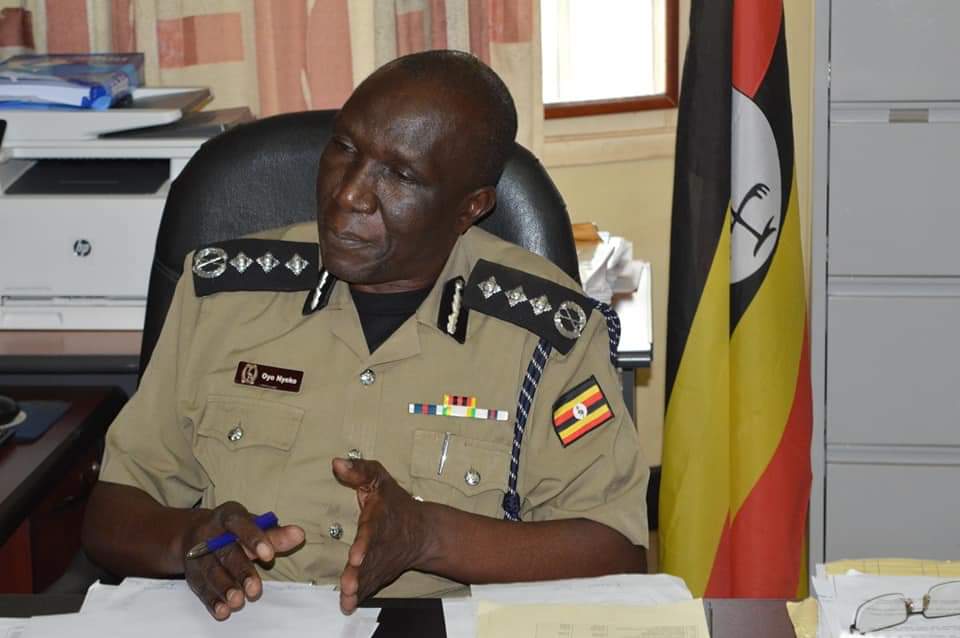
NIA special court sentenced two for 10 years in fake currency case
The National Investigation Agency (NIA) special court in Vijayawada on Wednesday sentenced two persons to 10 years rigorous imprisonment with a fine of Rs 30,000 for possessing Fake Indian Currency Notes (FICN).On March 31 last year, sleuths of Directorate of Revenue Intelligence (DRI) arrested two persons from Howrah-Hyderabad East Coast Express at Visakhapatnam Railway Station for possessing fake currency with a face value of Rs 10.2 lakhs in the denomination of Rs 2,000 notes. The two accused belongs to Mandya district of Karnataka and were identified as Mohammed Mahaboob Baig alias Azhar Baig and Syed Imran.
Lear More
15 people arrested and 2 million cigarettes seized in anti-smuggling operation.
Fifteen members of a Russian speaking gang were arrested last week in France and Belgium on charges of “organized smuggling” and “criminal conspiracy” as part of an investigation into the illegal import and resale of cigarettes, Europol has announced. Eight of the suspects were imprisoned, while the others were placed under judicial control. Some 2 million cigarettes were seized. The criminal organisation, composed mainly of Armenians and Ukrainians, smuggled cigarettes, but also other banned products, from Belgium to Paris and the west of France. The cigarettes, manufactured in Ukraine and Poland, were bought for 15 euros a carton and then resold for 40 euros throughout Europe. The group, described by Europol, which coordinated the investigation, as ‘very prolific’ had made nearly 70 deliveries of contraband goods, worth some 4 million euros, since it came into operation in October 2018. One of the Ukrainian gang leaders was arrested on Tuesday in France driving a truck containing 500 cartons of cigarettes and 10,000 euros in cash. Ten others were arrested in the Île-de-France region and another in Nantes. All are from Ukraine, Armenia, Poland or Azerbaijan
Lear MoreGolden Triangle: Challenges to India’s National Security
Sun Tzu’s famous words “The nature of war is constant change” looks like a premonition of today’s world, engulfed in multiple types of war. Indian security forces with their primary mission of ensuring national security from external aggression are also engaged in preventing various non-conventional threats emerging from poor governance, economic backwardness, terrorism, drug trafficking, gun running, ethnic conflicts, large-scale migration, and environmental degradation that infringe national security.
One such threat to our internal security is the menace of drug trafficking. The growing instances of drug trafficking in India were highlighted in the 2018 annual report by the United Nations-backed International Narcotics Control Board (INCB). According to the report, India is one of the major hubs for illicit drug trade. Though drug abuse prevails across India, regions in the northwest and northeast have rampant linkages with the global narcotics industry. India’s strategic location places it amid two largest sources of illicit drugs in South Asia- Golden Crescent (Pakistan, Afghanistan, and Iran) on the northwest and the infamous Golden Triangle (Myanmar, Thailand, and Laos) on the northeast. This article will focus on the key challenges to India’s security concerns with respect to the Golden Triangle.
Golden Triangle
The notorious Golden Triangle represents the region coinciding with the rural mountains of Myanmar, Laos, and Thailand. It is Southeast Asia’s main opium-producing region and one of the oldest narcotics supply routes to Europe and North America. With a 1643km long border with Myanmar, India has been at risk for the longest time, even before the emergence of Golden Crescent.
States of Arunachal Pradesh, Manipur, Mizoram, and Nagaland share their border with Myanmar. Drugs including opium, heroin, methamphetamine and many more are smuggled from Myanmar into the northeast. Also, drugs illicitly cultivated in India travel through the same route for trade. Drugs produced in the ‘Golden Triangle’ enter India through Mizoram, Manipur, and Nagaland from Bhamo, Lashio, and Mandalay in Myanmar. The route bifurcates and one channel moves northwards through Moreh in Manipur while other moves southwards to enter Champai in Mizoram. Moreh (Manipur), Champai (Mizoram), Dimapur (Nagaland), and Guwahati (Assam) have become the nucleus of drug trafficking industry in India’s northeast.
https://indianarmy.nic.in/writereaddata/CLAWS/Golden%20Triangle.htm
Lear More
$200,000 in counterfeit products seized at Port of Shreveport.
SHREVEPORT, La. (KTAL/KMSS) – Hundreds of counterfeit items have been seized at the Port of Caddo-Bossier. Over the last five months, U.S. Customs and Border Protection officers have seized more than $200,000 in counterfeit and potentially dangerous products. The most recent seizure was a shipment of 120 fake Yeti tumblers, 210 counterfeit Kylie Jenner and Urban Decay makeup sets, and more than 2,200 counterfeit Otter Box and Apple phone cases. More than 320 fake Apple chargers and ear pods were also confiscated. “Counterfeit electronics, you could have poor quality power cords, the lights they could cause fires, shock hazards. Counterfeit makeup could do damage to one’s skin. A lot of times products, could have high levels of lead in them without individuals realizing it.” Jim Norris, the Port Director for the Shreveport U.S. Customs and Border Protection office adds that these fake products also hurt legitimate American businesses.
Lear More
BOC, Navy intercept P25M worth of smuggled cigarettes in Zamboanga.
Customs and Navy agents seize 740 boxes of cigarettes – likely smuggled from Malaysia – in Zamboanga City last June 20, 2019. The contraband was loaded onto “MJ Farnaliza” and valued at P25 million. Photo courtesy of Bureau of Customs MANILA, Philippines — Bureau of Customs (BOC) and Philippine Navy operatives have intercepted a boat that was carrying smuggled tobacco products worth P25 million in Zamboanga City. The contraband loaded onto the boat named “MJ Farnaliza” likely came from Malaysia, according to authorities. BOC and Navy members seized the smuggled cigarettes last June 20. Authorities believe MJ Farnaliza came from Jolo province. Three crew members of the boat were also arrested during the operation, a source from BOC’s Intelligence and Investigation Service told INQUIRER.net on Monday. The source added that the crewmen, who claimed they were only hired to transport the 740 boxes of cigarettes to Zamboanga are currently placed under BOC’s custody as they undergo further investigation.
Lear MoreDRI arrests 4 men with forex worth Rs 1.27 crore at Delhi airport
The Directorate of Revenue Intelligence (DRI) has arrested four men departing for Bangkok at the Delhi international airport for allegedly trying to smuggled out of forex worth Rs 1.27 crore, officials. The accused were arrested when they were to depart for Bangkok on, they said. A detailed search of the passengers and their baggage resulted in recovery of euros 1,52,000, equivalent to Rs 1.27 crore, the officials said. All the passengers were arrested and the forex was seized, they added.
http://www.dri.nic.in/writereaddata/8445517_2019-06-27.pdf
Lear More
Customs officials seize stash of fake iPhone components in Hong Kong.
$120,000 of knockoff parts for iPhones and other handsets have been seized by customs officials in Hong Kong. The parts were being used to repair handsets sent in from countries including the United States, U.K. and Australia. The director and manager of the company were arrested during a raid on the company’s offices in the city of Tuen Mun. The offices were being used as a workshop and warehouse. One hundred phones sent in for repairs were found onsite. “Inside the 5,000 sq ft unit, about 3,900 counterfeit phones and parts bearing the brands of Apple iPhone and Samsung were also confiscated, along with some machinery. The parts included phone screens and enclosures. The company hired three workers to carry out the repairs, but the local men were not arrested in the operation.” Investigating officials say that the repair work included replacing cracked screens and damaged enclosures. They are still investigating the source of the fake goods. In Hong Kong, the maximum punishment for selling counterfeit goods is five years in prison and a fine of $60,000.
Lear More
Counterfeit and smuggled consumer goods worth $3.5 million seized across Americas and Caribbean.
An Interpol-backed crackdown on counterfeit and smuggled consumer goods across the Americas and Caribbean has resulted in the seizure of hundreds of thousands of potentially dangerous items. Operation Maya III saw law enforcement agencies in Belize, Costa Rica, Cuba, the Dominican Republic, Guatemala, Honduras, Jamaica, Mexico and Panama carry out a series of raids and inspections on markets, shops and at borders. In total, investigators participating in the effort, which took place back in April, confiscated some 746,000 items estimated to be worth around $3.5 million. The operation also resulted in the identification of 150 individuals and 65 companies suspected of being involved in the sale and distribution of smuggled and counterfeit consumer items. As part of the crackdown, law enforcement agents in Cuba seized 8,000 contraceptive pills that were destined for Venezuela, while their counterparts in the Dominican Republic impounded 1,700 units of suspected adulterated alcohol that is believed to have been smuggled into the country from Haiti.
Lear MoreCustoms officials seize smuggled cigarettes worth Rs 55 lakh.
SURAT: Directorate of Revenue Intelligence (DRI) and Customs officials seized imported cigarettes to the tune of Rs55 lakh at Surat railway station on Thursday. DRI and Customs officials had received information about the smuggled cigarettes that had been brought into the city in Howrah-Ahmedabad Express train. The consignment of the cigarettes was kept in the coach reserved for angadia parcels. The officials checked the entire train under the supervision of Customs superintendent Ghanshyam Soni. The cigarettes were brought to the Diamond City in boxes and were to be supplied to Asif Shaikh, official sources said. An officer said, “We have seized the consignment of smuggled cigarettes. We could not find the person who brought the consignment. However, it was found that the consignment was to be delivered to Asif Shaikh in Surat. Investigations are on to find out the real owner of the consignment.”
Lear More
Police Seize 5,000 Pieces of Counterfeit Products.
The Directorate of Interpol and International Relations has in a joint operation intercepted 5,000 pieces of counterfeit products. Acting Director Interpol and International Relations, SCP Benson Oyo-Nyeko told the media at Interpol headquarters Kololo on Thursday that the two-day operation codenamed ‘FAGIA COPSON IV’ was carried out in Kampala Metropolitan Area starting on Wednesday. Oyo-Nyeko revealed that counterfeit items including; hardware products, cosmetics, beverages, electronics and petroleum products seized among others had been seized. Oyo-Nyeko said counterfeit products pose a huge danger to the population and the country at large as they affect both the economy as well as the health of final consumers. He noted that there are huge amounts of such products in the open market. He, however, assured the public on the fight against counterfeit. “I wish to state our commitment to ensuring that brands are protected and the safety of consumers guaranteed. It’s an offense to produce such products,” Oyo-Nyeko said.
https://kampalapost.com/index.php/news/police-seize-5000-pieces-counterfeit-products
Lear More


